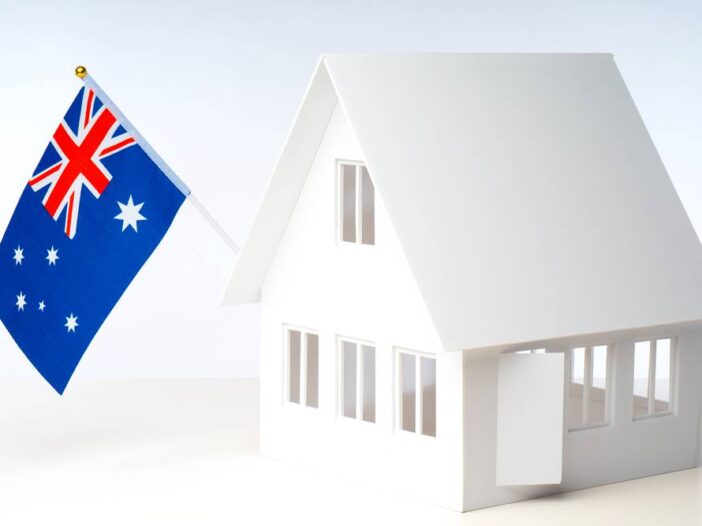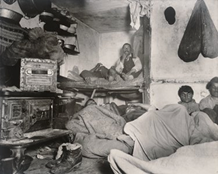It’s been a while since we’ve read about any negative impact on the housing market from short-term accommodation crowding out long-term lets.
Two years of COVID lockdowns and closed borders forced a lot of Airbnb hosts to convert their properties into long-term rentals.
This produced what was termed by some agents as an ‘apartment apocalypse’.
With the influx, vacancy rates in Melbourne — such as the Docklands — shot up to 18%.
No surprise considering that prior to COVID in 2019, Melbourne was the top location in Australia with the highest number of Airbnb listings.
That’s changing now.
Whizz forward to our new ‘COVID normal’ and Airbnb is back!
In some towns and regions across Australia, the sheer number of Airbnb listings are exacerbating the rental crisis to absolute extremes.
For example, Kangaroo Valley in regional NSW:
‘In the town of about 1,000 residents, there was just a single listing for a residential lease advertised this week. But if you want to stay for a few days, there are 76 homes listed on Airbnb, Stayz and VRBO to choose from.
‘Businesses in Kangaroo Valley have had to close due to a shortage of local workers and inability to house anyone willing to move there.
‘Across the wider Shoalhaven region, the problem is even more pronounced.
‘There were 94 long term residential leases advertised in April, but 4,131 homes available to rent for short stays.’
The situation is no better in WA.
According to the platform, over the past summer holiday season, Airbnb listings across the state were searched more than 2.1 million times.
That’s more than pre-pandemic levels.
Over 2021, almost 700,000 guests stayed at an Airbnb listing in WA.
The WA government recently proposed regulating the market to restrict the number of short-term lets.
The state is hovering close to 0% vacancy rates.
Brisbane authorities are also making moves.
Short-term hosts will face a 3.75% hike in their rates:
‘“Renters should not be left out in the cold while the property market continues to skyrocket,” he said while delivering the 2022/23 Brisbane budget Wednesday.
‘He gave several hours warning of the move, tweeting at 6am
‘“we’re going to give landlords who’ve turned homes into mini hotels using websites like Airbnb and Stayz a choice between returning these properties to the long-term rental market or face significantly higher rates.”’
The problem is that regulating the industry is expensive and time-consuming, and it’s not easy to enforce.
Internationally, crowded out cities have grappled with it for years.
In May 2016, Berlin authorities banned residents from renting to tourists through Airbnb.
A German law allowed them to do this.
It’s called — *deep breath* — Zweckentfremdung von Wohnraum (or ZwVbG for short).
It translates as the ‘prevention of the elimination of housing’.
Berlin was the Airbnb capital of Germany prior to this law being implemented in the city.
Following the changes, locals were instructed to anonymously report any suspected lawbreakers with fines of up to €100,000.
In October 2016, New York also made it illegal to advertise an apartment for rent for less than 30 days.
The thing is, Airbnb listings dropped only marginally, despite the prospect of increased fines.
Most hosts found loopholes that allowed them to skirt around the restrictions.
Likely this would be the case here also.
The situation has led to cries of overcrowding.
Melbourne’s QVI Apartments, for example, have several two-bedroom units operating as dormitories, sleeping four people to a room.
You could say that little has changed since the 19th century when Jacob Riis shocked readers with factual descriptions of slum conditions in New York City.
His book How the Other Half Lives was published in 1890.
He wrote:
‘Closets became bedrooms for multiple people. Small houses built for one family often became the residence for ten or more families, all of which were paying high rents.’
Here’s a shot of that:
|
|
|
Source: How the Other Half Lives, (Picture) 1890 |
Reminds me of a story I read a few days ago — ‘Devonport family of four crowd into one room amid rental crisis’:
‘Northern Tasmanian Stephen Leary bristles with anger as he talks about the small cabin…his daughter and her three children are paying hundreds of dollars a week to live in.’
We can argue the consequences back and forth, but one thing is for sure, the effect on the market is not negative for landowners.
Airbnb rentals will keep upward pressure on rents, feeding inevitably into rising prices in some regions as the earnings of the site increase the amount banks are willing to lend.
Rising rents encourage renters that can to become buyers. No doubt there’ll be plenty of demand for the government’s shared equity scheme. I expect it’ll be expanded over time.
Coupled with a hit on the supply of new accommodation resulting from rapid inflation in building materials, it will certainly maintain pressure on established property prices in areas feeling the squeeze.
But investors, take note, a well-located Airbnb with low vacancy rates can bring in up to three times the income of a long-term rental!
Assuming government regulation doesn’t interfere, targeting a short-term rental as an investment in the current inflationary environment could be an attractive proposition.
Best wishes,
 |
Catherine Cashmore,
Editor, The Daily Reckoning Australia
PS: If you’re enjoying The Daily Reckoning Australia, we’d love for you to help spread the word. Share this link with anyone who might enjoy us too: https://go.fattail.com.au/DRAUS


